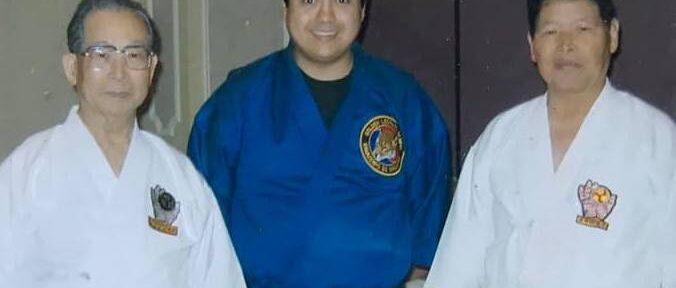When you experience a peak in training, your progress in the art is quite apparent. You often feel a sense of euphoria over the hard-earned gains. It is, in fact, a peak in the learning curve. This peak is a time when you learn quickly and easily.
This fast learning is a result of background information leveraged to acquire new knowledge. Rarely will you enter the peak stage at the onset of martial arts training. Expect the peak to occur after you can internalize some of the fundamentals. This internalization is also known as chunking information into manageable units.
In a perfect world, you want to maintain the peak stage for most of your martial arts career. A rough estimate is 60-70% of your entire career, if possible. Beware, however, of creating a burnout condition.
Kempo students can expect to reach the peak stage in the latter part of the beginner level and throughout the intermediate grades. It also occurs after plateaus.
Plateau
Have you ever experience a time when you forget techniques or merge two kata? This forgetfulness is a sign of the plateau phenomenon. This stage is a stalling in the learning curve. Your skill doesn’t improve as noticeably as in the peak stage. The brain needs time to integrate your new skills and abilities into its program if you will.
Equate the forgetfulness to this metaphor. When you clean out your desk, you pile everything in the middle of the room. From here, you can go through each item, one at a time, and place it in its place. If someone asks for a phone number, you can look through the pile on the floor, but it will take a while. This spring cleaning is the same thing that happens to the brain. The brain is organizing the material for quicker access. You’ll have to wait until the brain completes the reorganization.
When does it end? This stage ends abruptly if the student maintains a consistent training regimen. It’s a eureka phenomenon. I’ve watched students struggling with techniques for many months. Suddenly, for no apparent reason, they’ll be able to do it right. Eureka! It is vital to continue practicing until you emerge from the plateau and move into the peak stage during this stage.
Kempo students will experience plateaus at Purple, Blue, Green, and Brown belts due to the necessary quality improvement demands of rank advancement. It is also at these ranks that the amount of information seems voluminous and unmanageable. The advanced grades are a time to focus on internalizing the material and reflecting on memory strategies. A well-designed curriculum will aid in understanding the range and scope of the martial material.
Valley
This stage is the most important and the most dangerous of the three steps. The valley is the degradation of skill and often results from time off. You’re mentally exhausted, thinking of ways to avoid training sessions. Often, valleys result from burnout, occurring after heavy training for tournaments, testing, or exhibitions.
When used correctly, you can schedule a break from the arts and give your mind a break. It’s a vacation of sorts where you avoid martial arts altogether. Take this time to pursue other interests. Schedule a break to prevent burnout, renewing your vigor and determination. This break or valley should be concise, a week at most.
If a peak period lasts for long periods, the increased learning can begin to wane. When this happens, allow yourself to slow down; otherwise, the peak will become a burnout or extended valley stage. This valley stage is only beneficial if you control it and schedule it for a set time. The worst thing to do is let emotion rule. You may never return to the arts.
In Kempo, the valley occurs as needed. Some students need it every three months, others every three years. Most people lie in between these two points. Sometimes, this need for a focus shift can result from remaining too long in a plateau due to a lack of practice and motivation. The valley is yin, and the peak is yang. They need each other to create a better whole.
A Natural Cycle
These three stages are a natural cycle. Don’t fight the urge to move from one step to the next. Recognize it for what it is and work to move from plateau to valley to peak. Open your awareness; listen to your body and mind. Though seemingly contradictory, it helps speed progress in the martial arts if you move through this learning cycle.
The next time you’re feeling frustrated and stalled, remember you may be in a plateau stage. Don’t get angry and quit. Continue practice knowing everyone else has or will have the same experience. Also, know it will end, and you will encounter an explosion in your learning ability. The plateau stage is a great time to go back to the basics and fine-tune your skill. Slow and steady wins the race. Good luck and train well.


